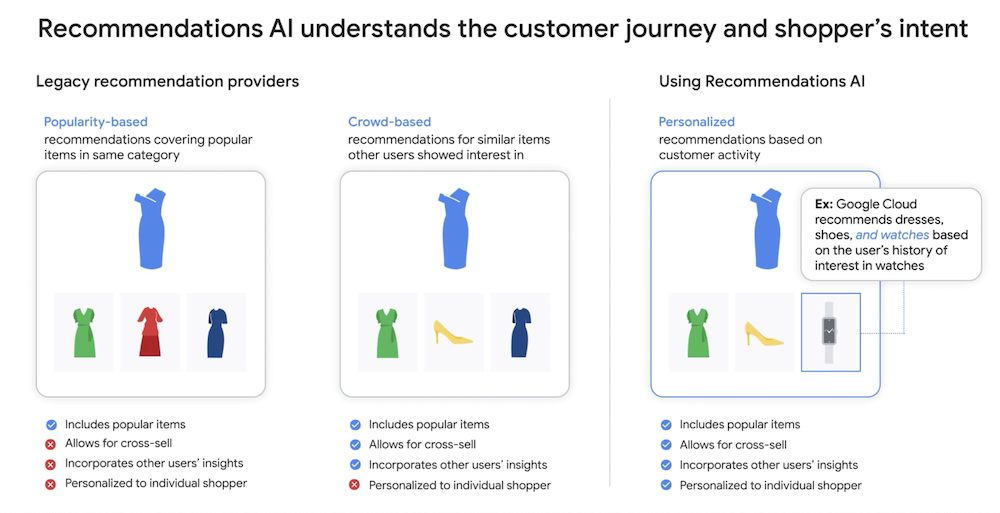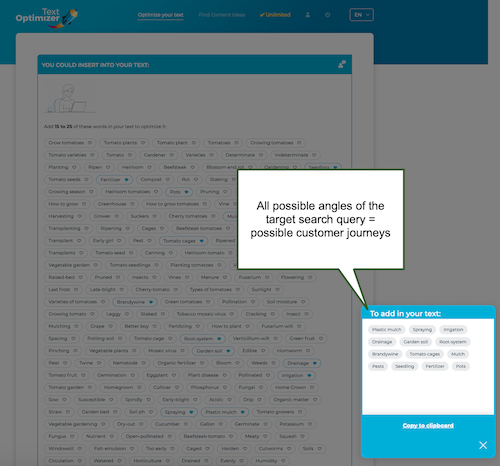Digital marketing is being disrupted by technology development and the fast pace in which the Covid pandemic forced the world to change their shopping behavior. Yet, fast-developing technologies are often deemed too complicated or too expensive (or both) for small businesses. However, there are digital marketing tech tools that are both easy to use and affordable. Here are five to look into and possible embrace in your future campaigns.
Artificial Intelligence is a "machine" that thinks and reacts like a human being. It is the fast-growing branch in computer science and affects all areas of our lives, including digital marketing.
AI solutions help aggregate and understand complicated data, qualify sales, predict future ROI, better predict ideal customer profiles and come up with competitive advantages. AI-based marketing platforms can even help define more competitive, contextually relevant pricing as well as predict the effectiveness of upselling strategies.
Recommendations AI is a perfect example of how Artificial Intelligence can help make your digital marketing efforts and sales funnel more effective. The solution personalizes product recommendations, auto-generates the most effective CTAs, and delivers the best user experience in real time.

Google has used semantic search for years in order to generate more relevant search results and search snippets. Now semantic search is making its way into digital marketing, allowing small business owners and marketers to better understand search intent and create a better converting copy.
Text Optimizer, pictured below, is one example of how AI lets content creators analyze all possible buying journeys and adjust their copywriting techniques accordingly.

Augmented Reality overlays virtual objects on top of a real-world environment. AR enhances reality by making it a more effective tech tool for digital marketing by allowing buyers to test products in real-world contexts.
“Can you imagine having this?”
AR helps answer that question in an affirmative and convincing way. The basic idea is that the consumer is much more likely to invest in something they can experience first.
Here are a few examples of AR-empowered digital marketing:
With the pandemic forcing us to shop and travel from home, AR has also found its ways in museums, art galleries and even colleges.
Apple offers free tools to help you create AR-based apps to integrate your product into the surrounding reality.
You can even integrate AR technologies into your website through WordPress.
It is hard to imagine just about any digital marketing campaign without videos.
Videos capture attention on social media, make ads more effective, improve email open rate, make your assets more engaging and shareable, etc. Yet, not many businesses have budgets to invest in video content.
Luckily, new digital marketing tech tools let you create professional videos with only a few clicks of a button. You can easily turn your existing assets (like text and images) into videos.
Invideo is one the pioneers of that small-business-friendly video creation technology that make video marketing doable on a modest budget.
Remarketing, also referred to as retargeting, was initially introduced by digital marketing giants like Facebook and Google. It lets you reach people who once interacted with your brand or your site. Since you already have data on what they interacted with, you can reach out in a more meaningful way.
Many businesses don't realize you can also create on-site remarketing access to better engage your past visitors. For example, if a user read your guide on how to sew, you can serve them custom CTAs to buy your sewing kit. You can reach them as they continue their journey through your site or next time they visit.
Ultimately, remarketing allows marketers to consolidate multiple marketing channels to create more detailed customer profiles. The more channels we use, the more data we collect. This includes on-site data, email engagement, social media interactions and monitoring, etc.
All that allows us to develop a genuinely customer-centric focus providing tailored, cross-channel, consistent, and connected experiences. Remarketing has a positive impact on SEO KPIs pushing marketers to re-think shopping behaviors and focus on conversions rather than clicks.
Ultimately, digital tools will improve search and product discoverability by creating personalized experiences and letting marketers understand (and serve) their target audience better.
To accommodate fast-moving technology, businesses should try to add it into their marketing strategies.
You can invest in advanced content development and lead nurturing applications, smart and increasingly independent chatbot-building platforms, and enhanced dynamic personalization software.
Marketers should always be looking for, learning, and testing digital marketing tech tools.